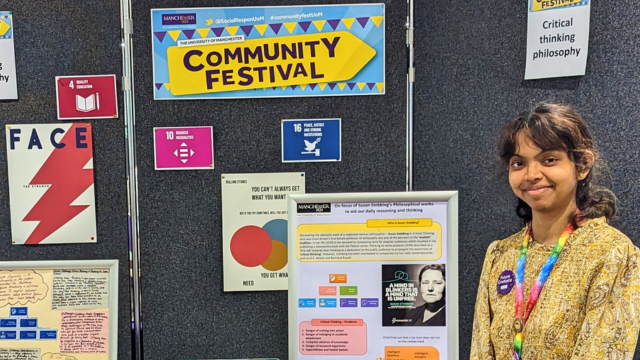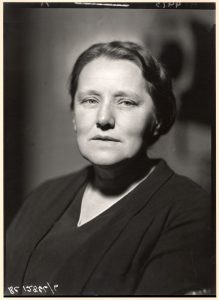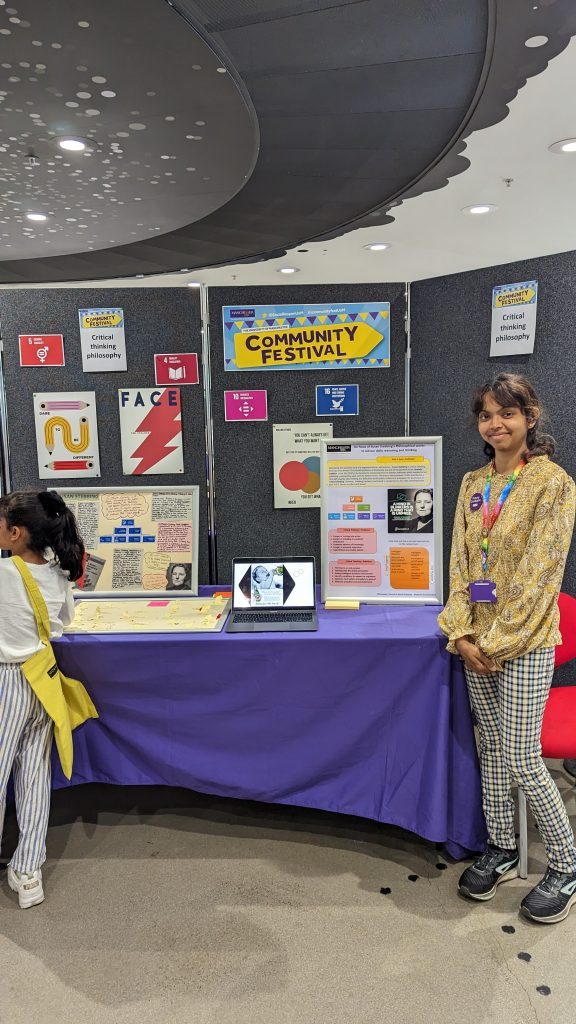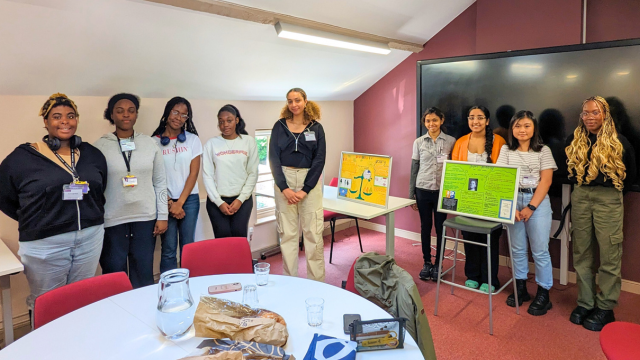
Meet Maheshi, our PhD Philosophy Ambassador and Student Representative
Maheshi Gunawardane is a 3rd Year PhD Philosophy student in the School of Social Sciences. Originally from Sri Lanka, her PhD is funded by a studentship awarded by the Philosophy department.
Her work and research focuses on British philosopher Susan Stebbing and the research project is titled: Susan Stebbing and her varied facets: on Critical thinking and informal logic. We asked her a few questions about her research study so far.

Susan Stebbing (1885 – 1945) Portrait
When did you first know you wanted to study a PhD?
I knew I wanted to pursue my PhD since the taster session / open day at The University of Manchester which was held online amidst the pandemic time period. (My research) does not actually follow from my bachelor degree in computer studies, although there are links such as computational logic, class, and set theory.
I was (also) considering The University of York and The University of Reading. I chose The University of Manchester due to the research quality and how close my PhD resonated with my selected PhD supervisor – Dr. Frederique Janssen-Lauret.
What are your research interests and objectives?
I am specialising in Susan Stebbing’s philosophy in relation to analytic philosophy, critical thinking, formal logic, informal logic, and emotional intelligence. My research is the first PhD to focus on Susan Stebbing in order to bring her work to life where many practical lessons on critical thinking, propoganda, newspapers and advertisements are still relevant as of today
My current research focuses on looking into her life as a philosopher, bringing the specialist areas of work and contributions to attention, and providing a diagnosis of reasons for neglect by historians of analytic philosophy and the marginalisation of her works. Moreover, Stebbing has been overlooked in comparison to her male contemporaries, such as G.E. Moore and Bertrand Russell I argue that Susan Stebbing should be considered as a ‘founder’ or ‘ancestor’ of Analytic philosophy as a prima facie tension exists in exhibiting the work of women philosophers despite the importance of their work.
How do you communicate your research with the wider public?
I (with my supervisor) hosted and taught at Critical Thinking and Social Justice for the years 2022 and 2023: A Summer School on an annual basis for young women from widening participation backgrounds.
In June last year, I held a stall at the Community Festival, which focused on communicating research to the general public where I had the opportunity to discuss my research findings in an interactive manner to get an opinion from the general public

Masheshi at the Community Festival displaying her research
This month (March 2024) I gave a talk at the Manchester Grammar School on Susan Stebbing and her critical thinking facet which the school students were keen on.
What tips do you have for future PhD students?
1. Set up regular meetings with your supervisors.
2. Time management is key. Reflect on the need to take a break.
3. Doing regular exercise – walking, running or heading into gym.
4. Willingness and putting effort into reading the key texts.
Treat the PhD as a job, which is important. Work-life balance is key and forms a large part of the overall commitment. A typical week would involve a lot of reading, working on a draft paper, preparing for tutorials and marking assessments as I am a teaching assistant on an academic front and setting sufficient times for breaks and exercise.
What have been your PhD highlights? What have you learnt about yourself or your field?
Presenting at my 1st virtual conference at 5th International Conference on Future of Social Sciences and Humanities and presenting my poster at the Board of Governers’ visit. Also, on the successful completion of our 1st Summer School that we are able to give back to the community

Masheshi with students at Summer School
I have learned that I could acquire new skills in reading in-depth texts related to my field and become more comfortable presenting with my peers and outside of the university. And, to have an unwavering commitment to philosophy all thanks to my supervisors (both Dr. Frederique Janssen-Lauret and Prof. Fraser MacBride) and the entire philosophy department.
After I finish my PhD studies, I aim to continue my commitment to academia, be it in research or teaching.
Find out more about Maheshi’s research when she spoke to us at the launch of the Humanities Doctoral Academy.






0 Comments